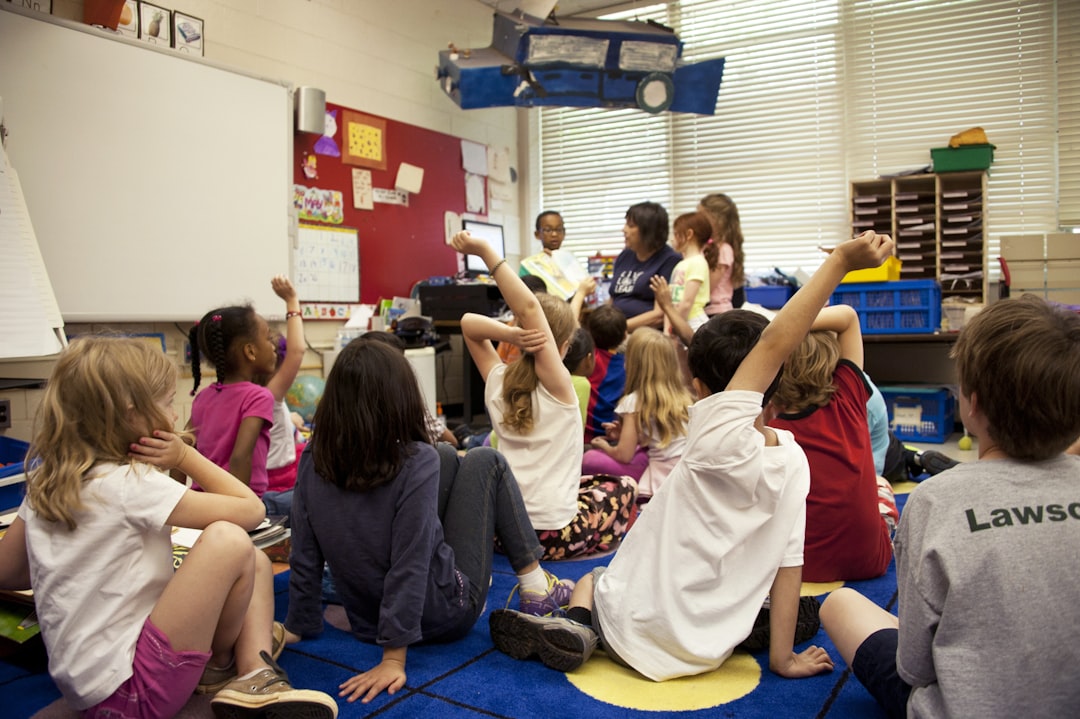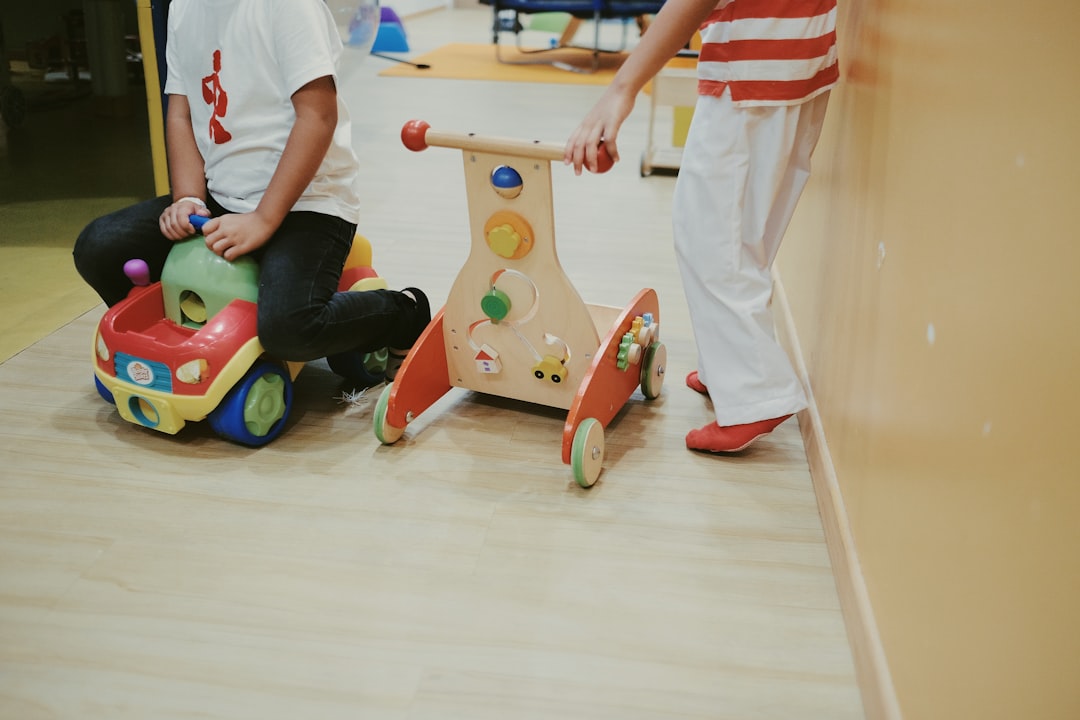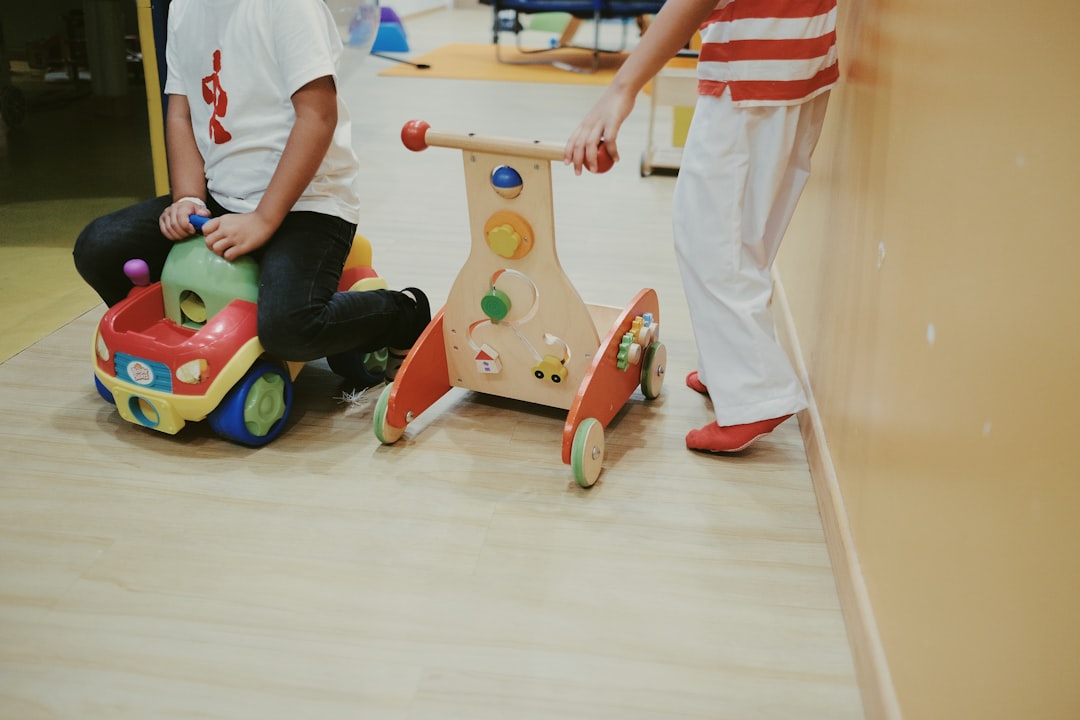Parents in Missouri seeking childcare should understand state laws mandating background checks, secure facilities, and supervision ratios for St. Louis daycares to protect against sexual abuse. Open communication with teachers, involving a daycare lawyer for sex abuse Missouri cases, empowers parents to recognize red flags. Parents have legal protections and resources to report suspected misconduct and consult daycare lawyers for guidance on privacy, compensation, and justice. Observing behavioral changes and reporting unusual incidents are crucial; involvement of a daycare lawyer enhances safety through transparent collaboration between parents and educators.
In St. Louis, ensuring child safety within daycare facilities is paramount. Effective parent-teacher communication plays a pivotal role in preventing potential abuses and fostering secure learning environments. This article delves into crucial aspects of child safety protocols specific to St. Louis daycares, emphasizing the power of open dialogue between parents and teachers. We explore legal rights, identify red flags, and provide resources for Missouri parents seeking justice as well as steps towards collaborating to safeguard our children from sexual abuse in these facilities.
Understanding Child Safety Protocols in St. Louis Daycares

Understanding child safety protocols is paramount for parents entrusting their children’s care to St. Louis facilities, especially in light of sensitive issues like sexual abuse. Missouri law mandates specific safety measures and reporting procedures for daycares, preschools, and other childcare centers to ensure the well-being of young minds and bodies. These protocols often include background checks for staff, secure entry systems, supervision ratios, and comprehensive policies addressing physical and emotional safety.
A daycare lawyer in Missouri can provide invaluable guidance on these protocols, helping parents navigate complex legal requirements and ensuring their children’s safety. By understanding the law and working with legal experts, parents can actively participate in creating a protective environment where their children can thrive, free from potential harm.
The Role of Parent-Teacher Communication in Prevention

Effective parent-teacher communication plays a pivotal role in preventing potential safety hazards, especially concerning child sexual abuse, within St. Louis facilities. It serves as a protective measure by fostering an environment of transparency and trust between educators and parents. When teachers actively involve parents in discussions about child safety protocols, they create a powerful alliance against any form of abuse. This collaborative effort enables quick identification and reporting of suspicious activities or behaviors, ensuring prompt intervention.
By staying informed and engaged, parents can better understand the risks and take proactive steps to safeguard their children. A daycare lawyer for sex abuse in Missouri highlights the significance of open lines of communication, as it empowers both teachers and parents to recognize red flags and respond accordingly, ultimately contributing to a safer environment for all children under their care.
Legal Rights and Resources for Parents in Missouri

In Missouri, parents have legal rights and resources when it comes to protecting their children’s safety in educational settings, especially concerning potential instances of sexual abuse. The state recognizes the significance of proactive measures to safeguard minors, which is why there are stringent laws in place to hold facilities accountable, including daycares and schools. Parents who suspect any form of child sexual abuse or exploitation have the right to take action.
If a parent believes their child has been a victim of sexual misconduct within a daycare center or school, they can consult with a qualified daycare lawyer for sex abuse Missouri. These legal professionals are well-versed in Missouri’s regulations and can guide parents through the necessary steps, including filing reports, understanding compensation, and pursuing justice. Parents should be aware of their rights to privacy and confidentiality while navigating these sensitive matters.
Identifying Red Flags: Signs of Potential Abuse

Identifying red flags is a critical aspect of ensuring child safety in St. Louis facilities, especially daycares and schools. Parents and teachers alike should be vigilant and educated to recognize signs of potential abuse, which can range from physical harm to emotional manipulation. Some key indicators include sudden changes in behavior, such as increased aggression or withdrawal, along with unexplained injuries or marks on the child.
Daycare lawyers in Missouri emphasize that consistent observation is essential. Teachers should pay attention to a child’s interactions and relationships within the facility. If a child seems isolated, avoids certain activities, or displays unusual fear or anxiety around specific individuals or situations, it could be a cause for concern. Prompt reporting of any suspicious activity or observations to relevant authorities is crucial in protecting children and ensuring timely intervention.
Collaborating to Create a Safe Learning Environment

Creating a safe learning environment is a collaborative effort between parents and teachers, and it’s crucial in ensuring child safety at St. Louis facilities. Parents, as the primary caregivers, play a vital role in sharing insights about their child’s behaviors, fears, or any potential vulnerabilities with teachers. This open dialogue allows educators to adapt their teaching methods and create a more secure space.
Teachers, on the other hand, bring expertise in child development and safety protocols. They can identify signs of distress or unusual behavior and take proactive measures. By combining these perspectives, parents and teachers can navigate challenges like bullying, online risks, or physical dangers more effectively. Involving a daycare lawyer for sex abuse Missouri cases can also be beneficial, ensuring legal protections and fostering a culture of transparency and accountability.





